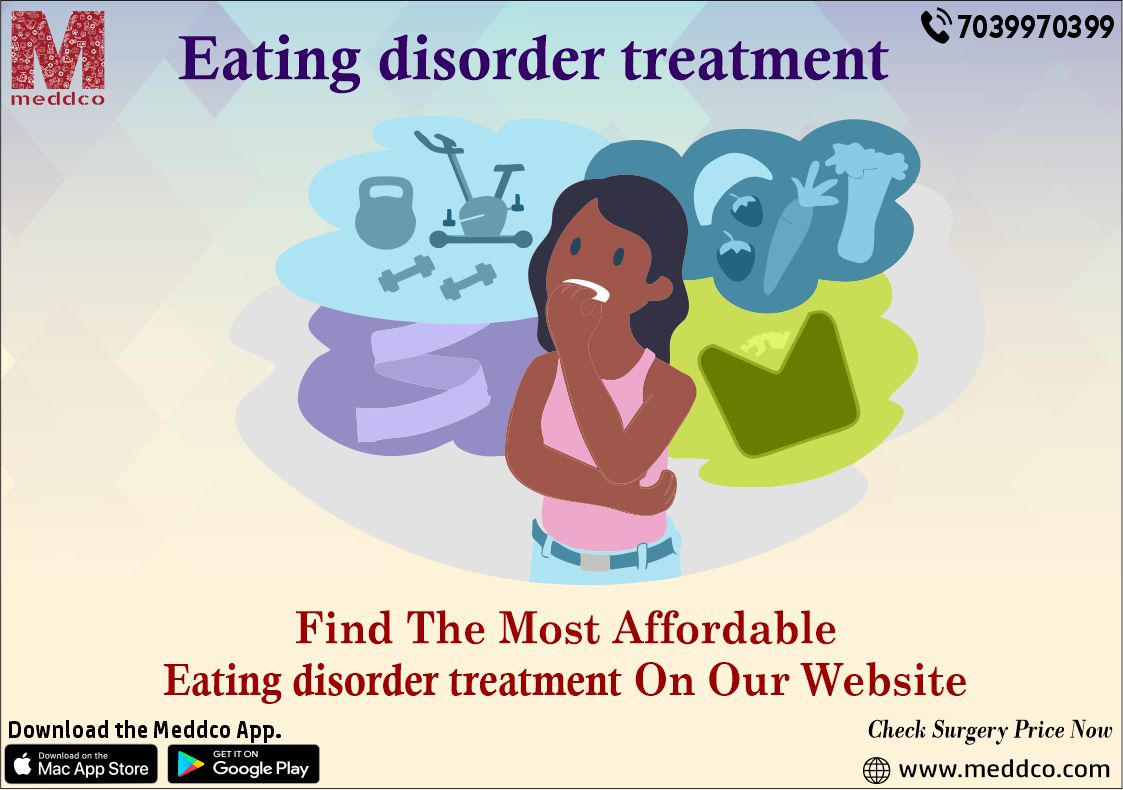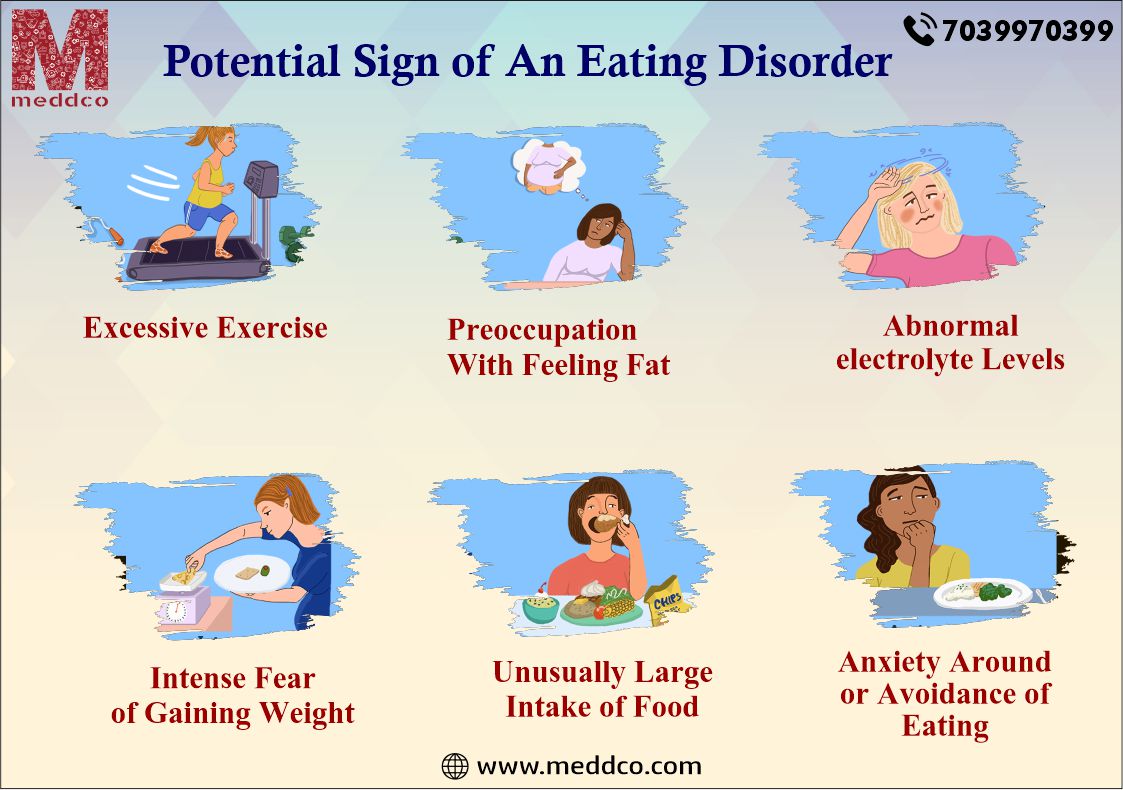

: Admin : 2022-06-07
Eating disorders are defined by eating practices that interfere with a person's mental, physical, and emotional wellbeing. This might be due to overeating (bulimia nervosa and binge eating) or undereating (anorexia nervosa). It might be uncomfortable and difficult to speak out about an eating problem, but someone's health or life may be at stake, so it's critical to call out.
What are some of the most frequent forms of eating disorders?
There are several forms of eating disorders, such as:
Binge eating syndrome (BED)
People with this problem regularly eat significant amounts of food even when they are not hungry (a condition known as 'binging'). They often experience shame and guilt after an eating binge; yet, unlike those suffering from bulimia nervosa (see next section), they do not expel their food. People with binge eating disorder often fast or go on diets in reaction to how they feel after a binge.
Anorexia nervosa
People with this disease experience frequent eating binges, frequently in private, and subsequently purge the food with vomiting, laxatives, or diet pills (a process known as 'purging'). Bulimia sufferers often feel out of control. Bulimia nervosa affects around one out of every ten persons who suffer from an eating problem.
People with this syndrome may be exceedingly underweight, obsessed with eating, and afraid of gaining weight. They often have a skewed body image and perceive themselves to be overweight. People suffering from anorexia nervosa may impose tight regulations and limits on their meals and workout routines.
Other known feeding or eating disorders (OSFED)
A person with OSFED exhibits many of the characteristics of other eating disorders, yet their condition does not correspond to any of them. OSFED patients often have extremely disruptive eating habits and a skewed body image. OSFED affects about one in every three persons seeking treatment for an eating problem.

What are the signs of an eating disorder?
It might be difficult to detect whether someone has an eating issue since they may attempt to conceal it out of shame or guilt. Some of the behaviors related with eating disorders, however, include as follows:
eating disorder eating problem therapy binge eating
No Comments